About this campaign
We are seeking contributions to fund the Super Yeast Creation Project, a research project conducted jointly by several laboratories at the University of Tokyo, in which AI techniques (such as deep learning) will be used to enable advanced methods for the directed evolution of yeast. The ultimate goal of the project is to select and cultivate yeast strains that are outstanding in terms of their efficiency and contribution to the flavors of fermented foods, such as bread, miso, soy sauce, beer, wine, and sake, as well as other novel products. Although the theme of our research project is to create "Super Yeasts" for the production of exceptional fermented foods, the advanced AI-enabled directed evolution techniques that we will develop could also be used towards other achievements, such as Super Yeast-based pharmaceutical (e.g. insulin) and biofuel (e.g. bioethanol) production.
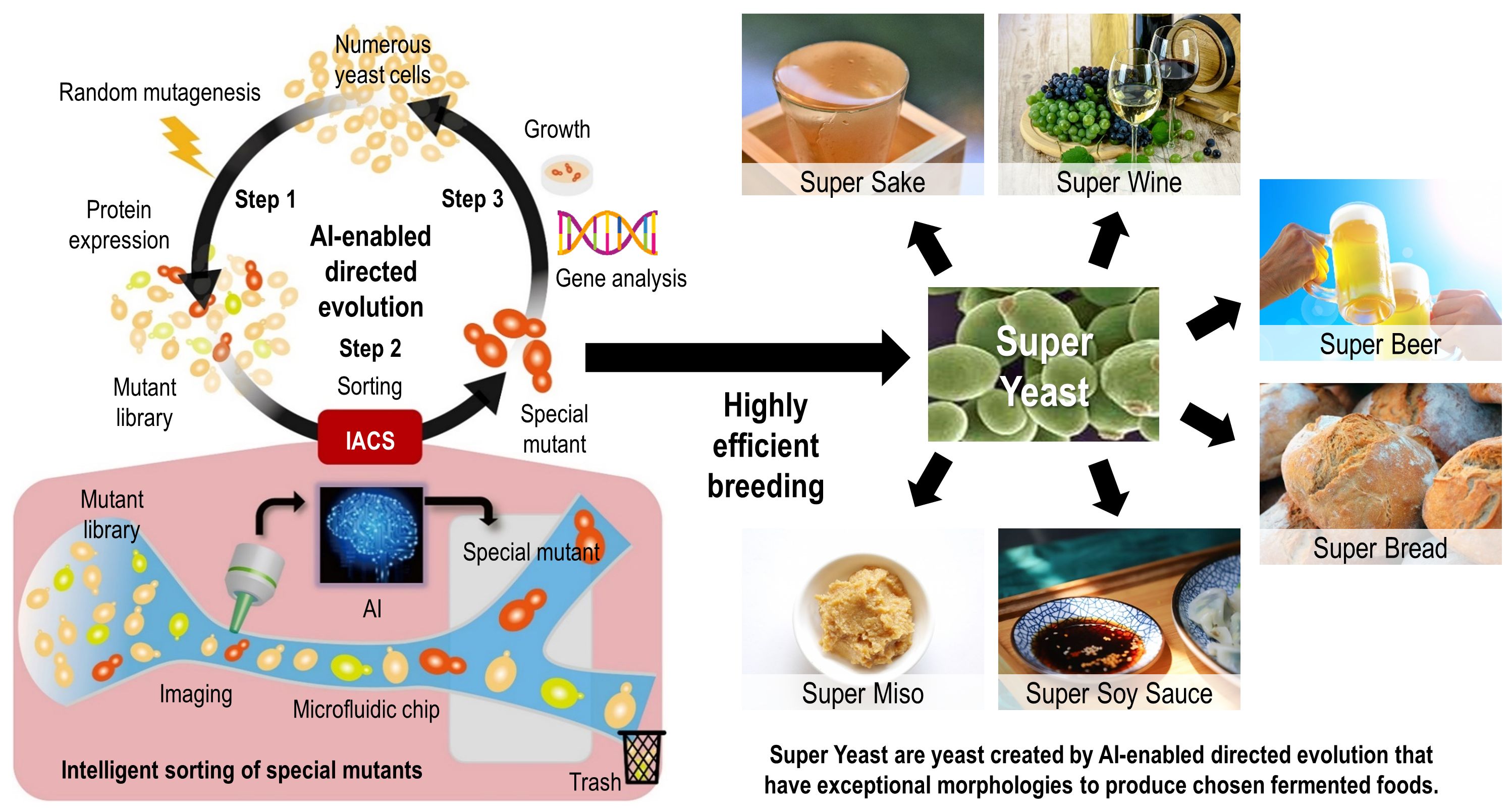
Crowd-supported research
With conventional research funding sources, pursuing bottom-up research born from the free ideas of researchers has become difficult due to various constraints, such as heavy administrative work or requirements that focus on short-term achievements. As a result, the scientific community overall lacks support that incentivizes long-term perspectives and the pursuit of highly challenging research. In this project, crowd funding will enable a strong, interdisciplinary team of scientists to work on research themes that are difficult to carry out under conventional research funding. Our goal is to return our research results to society. We want you to join us.
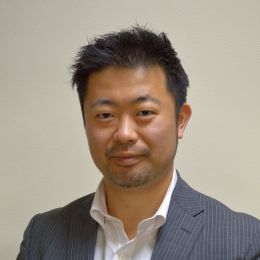
What is "Super Yeast"?
Yeast, a member of the fungi kingdom known as the "Mother of Fermentation", is a microorganism used to make fermented foods such as bread, miso, soy sauce, beer, wine, and sake. It is one of the most widely-used microorganisms for industrial purposes, and at least one use should be familiar: when yeast consumes glucose, it produces alcohol. There are many variants of yeast (with different sizes, shapes, etc.), and their differences are important to consider when making fermented foods. The physiology of yeast can be evaluated via their morphology (structural traits), and by using this information, it is possible to predict the yeast's effect on fermentation. Professor Yoshikazu Ohya of the Graduate School of Frontier Sciences at the University of Tokyo has been researching this relationship between yeast morphology and fermentation and brewing for more than 30 years. In 2019, he discovered that genome editing and morphological analysis are highly important for the breeding of sake yeast. Super Yeast are yeast created by AI-enabled directed evolution that have exceptional morphologies to produce chosen fermented foods. For example, we expect that Super Yeast can be used to make extremely delicious bread, miso, soy sauce, beer, wine, and sake. Furthermore, there could be currently unknown sake styles which could be created by using new Super Yeast. Finally, we expect that Super Yeast could be used to address global food problems by dramatically improving the production efficiency of fermented foods.
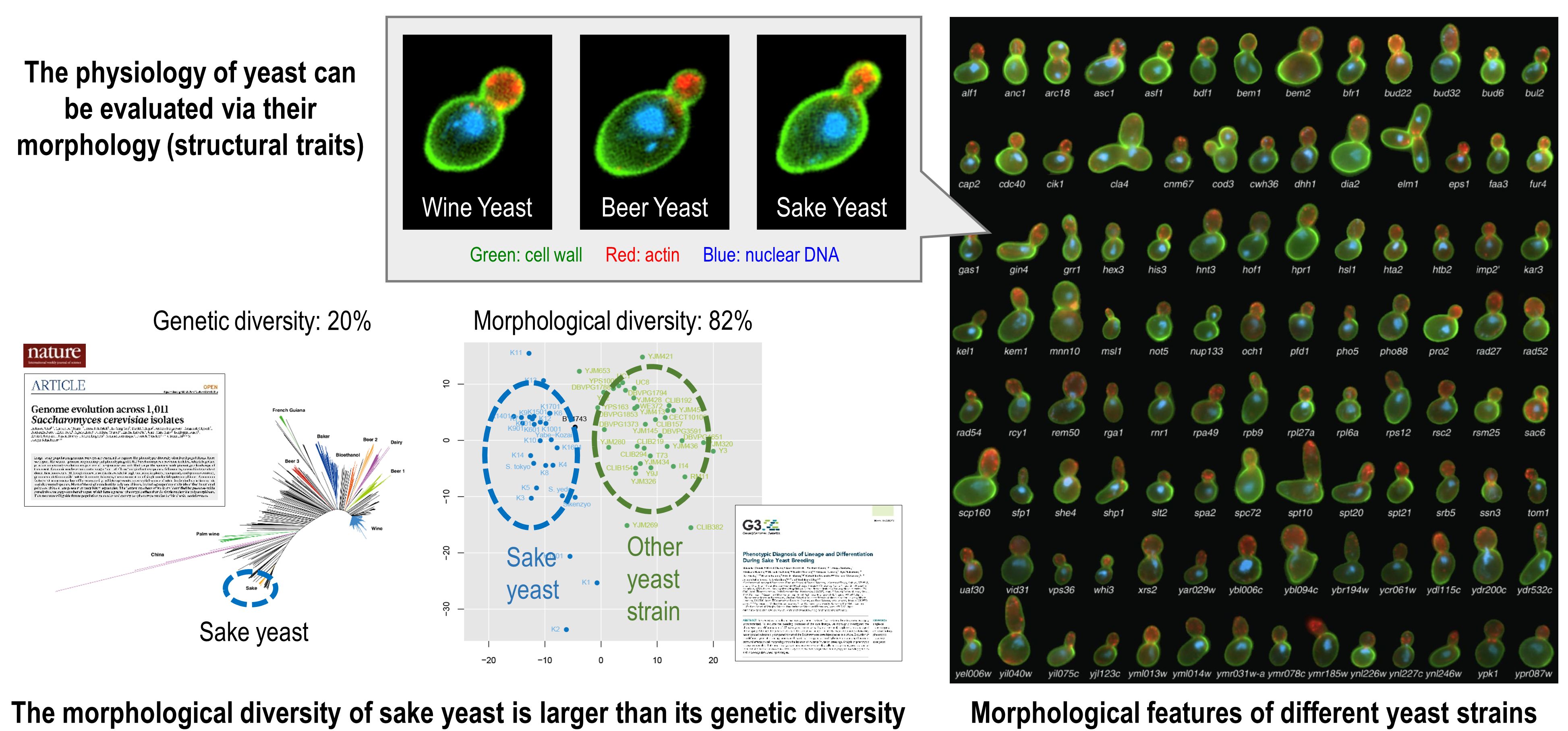
AI-enabled directed evolution
Professor Keisuke Goda et al. of the Graduate School of Science at the University of Tokyo successfully developed in 2018 an innovative intelligent (i.e. AI-enabled) image-activated cell sorting (IACS) technology (published in Cell in 2018), which can enable new methods for performing directed evolution, a technique which received the Nobel Prize in Chemistry in 2018. In directed evolution, the functionality of specific biomolecules, produced by bio-organisms, is improved by selectively breeding the best performing organisms across several successive generations of life. Each generation contains a diverse palette of random genetic mutations, and selection of the best of them harnesses the natural process of evolution for scientific and industrial advancement. Through directed evolution, it should be possible to create Super Yeasts that produce fermented foods, such as bread, miso, soy sauce, beer, wine, and sake, that have exceptional taste. Professor Yoshikazu Ohya, a yeast expert, has spent years observing and analyzing different yeast mutants with specific morphologies from a wide variety of yeast cell populations. Typically this analysis is done by looking at the yeast one by one using a microscope, a highly inefficient process with a high cost of time and effort. However, the state-of-the-art intelligent IACS can dramatically improve the accuracy and speed of this process (by more than 1000 times), without relying on human labor or experience. This technology makes it possible to quickly and accurately discover morphologically specific cells among huge cell populations. Using IACS, our ability to find and isolate outstanding cells is exceptional, allowing us to complete in half a day an amount of work that would have taken have a year to finish under traditional manual methods.
The Nihon Keizai Shinbun 2019-01-16 "NextTech2030: Automatic and Efficient Selection of Target Cells for Efficiently Producing Nobel Prize-Winning Research Outcomes".
Read the article (Japanese)

The next steps
During the Japanese 2020 fiscal year, Professor Goda will develop a novel AI-enabled directed evolution method in cooperation with Professor Sotaro Uemura of the Graduate School of Science at the University of Tokyo. In fiscal year 2021, Professors Goda and Ohya will apply this new techonoly to the directed evolution of yeast based morphological information. In the 2022 fiscal year, project researchers will analyze the isolated Super Yeast and their gene functions. In the 2023 fiscal year, we plan to develop exceptionally flavored alcohols by using the Super Yeast strains we will have developed. Following that, we plan to create a venture company built around these concepts. The creation of new foods and richer flavors, enabled by our Super Yeast and in cooperation with major food companies, is expected to produce tremendous economic results. The theme of this project is to create Super Yeast and apply it to the creation of super fermented foods, but the AI-enabled directed evolution method we develop could also be applied to other major issues. New yeasts might be developed to tackle the production of pharmaceuticals, such as insulin, or biofuels, such as bioethanol. All of these various applications are worthy goals which we hope to achieve in the future.
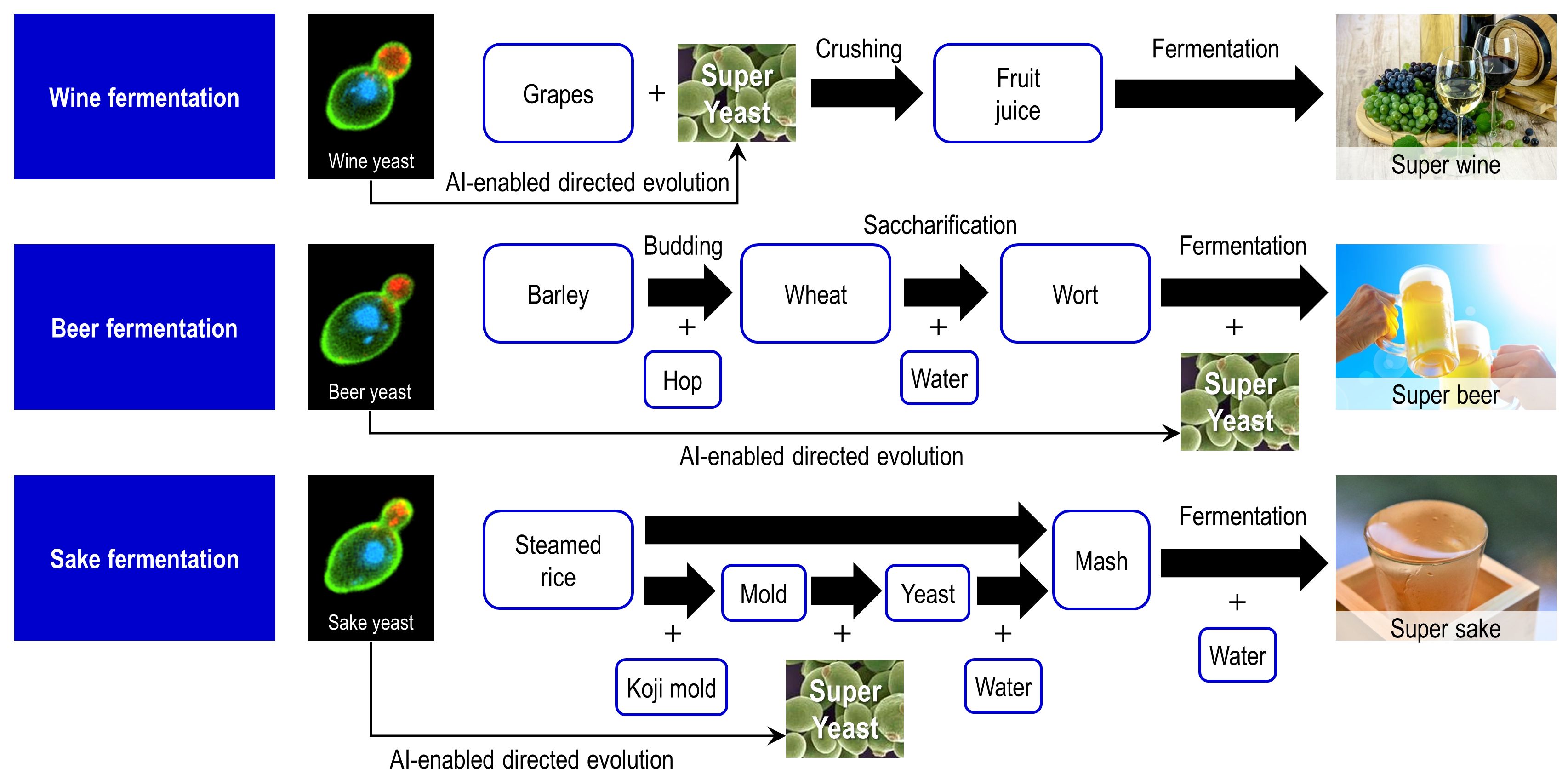
About the research team
The research team undertaking this project consists of members of the Goda Laboratory (Department of Chemistry, Graduate School of Science, the University of Tokyo), the Ohya Laboratory (Department of Advanced Life Sciences, Graduate School of Frontier Sciences, the University of Tokyo), and the Uemura Laboratory (Department of Biological Sciences, Graduate School of Science, The University of Tokyo), led by Professors Goda, Ohya, and Uemura, respectively. The project has additional significance by bringing together an international team of researchers, including students and young researchers from around the world, who will actively cooperate on this project and experience together the excitement of undertaking challenging research.



Keisuke Goda
Professor, Department of Chemistry, Graduate School of Science, The University of Tokyo
Professor Goda obtained his B.S. in Physics from the University of California, Berkeley. He received his Ph.D. degree in physics from the Massachusetts Institute of Technology. He has been a Professor at the University of Tokyo since 2012. He is also an adjunct professor at the University of California, Los Angeles and at Wuhan University. He specializes in photonics, physical chemistry, and bioengineering. He has received numerous awards such as JSPS Prize, Japan Academy Medal, and the Yomiuri Gold Medal.
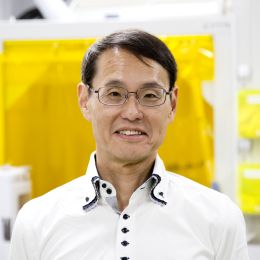
Yoshikazu Ohya
Professor, Department of Integrated Biosciences, Graduate School of Frontier Sciences, The University of Tokyo
Professor Ohya received his Ph.D. from the University of Tokyo. His research specialization is in molecular cell biology, especially molecular biology and molecular genetics for budding yeast. His research focuses on cell morphogenesis, cell proliferation, and intracellular signal transduction. He was mentored by Professor Emeritus Yoshinori Osumi, who received the Nobel Prize in Physiology or Medicine. Professor Ohya has been working on budding yeast for over 30 years.
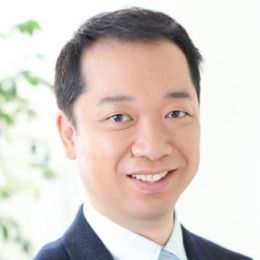
Sotaro Uemura
Professor, Department of Biological Sciences, Graduate School of Science, University of Tokyo
Professor Uemura graduated from Waseda University with a B.S. degree in Applied Physics. He received his Ph.D. from Waseda University in the Graduate School of Life Science and Engineering. After working at RIKEN, he assumed his current position as Professor in 2014. Professor Uemura specializes in single molecule biology and single cell biology. He has received the MEXT Young Scientist Award and the Inoue Research Award.
Tax Benefits (in Japan)
Donation by Individuals
The part exceeding 2,000yen of your donation is subject to an income deduction with limits of 40% of your annual income of the applicable year. Please use the receipt of donation, which will be separately sent, as an exemption certificate. (Please file an income tax return.) *For the measure of tax (income tax) deducted by donation exemption, please use the chart on the right side as a reference.
Unit: Yen
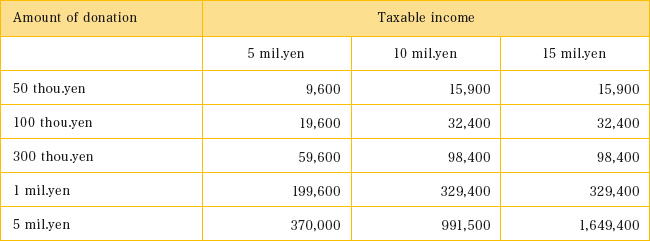
Contact
The University of Tokyo Fund Office
〒113-8654 Tokyo, Bunkyo-ku, Hongo 7-3-1
Tel:03-5841-1217(9:00~12:00、13:00~17:00 Mon-Fri)
Fax:03-5841-1219
E-mail:kikin.admgs.mail.u-tokyo.ac.jp
| Funding Goal |
|---|
| JPY 20,200,000 |
- Project Owner
- Goda Lab, Department of Chemistry, Graduate School of Science, The University of Tokyo
How we will use donations
All donations will be used for research expenses: IACS modification and maintenance, cell culture environment maintenance, cell culturing consumables, cell analysis, personnel, etc.
This project is a collaboration project between Music Securities, Inc. and the University of Tokyo Fund. It will be treated as a donation to the University of Tokyo.
Tax law incentives apply
After donating to this project, attach the receipt sent from the University of Tokyo Fund as a deduction certificate to your final tax return and submit it to the relevant tax office.
More information here (Japanese)

Get this benefit!
Move to the University of Tokyo Fund
Choose your benefits
[Participation period 1]
From November 14, 2019 to March 31, 2020
[Participation period 2]
From April 1, 2020 to September 30, 2020
[Participation period 3]
From October 1, 2020 to December 31, 2020
[Participation period 4]
From January 1, 2021 to March 31, 2021
*Benefits will be awarded according to the total amount of donations during the period.
*Please refer to the explanation column for each benefit for the award period.
*In addition to the thanks from this project, a title will be awarded to you according to your donation amount. For more information, see here (Japanese).

Research report
We will send you a research report (PDF) by email.
- It will be sent after April 2021.
- The report will be sent once.
Move to the University of Tokyo Fund
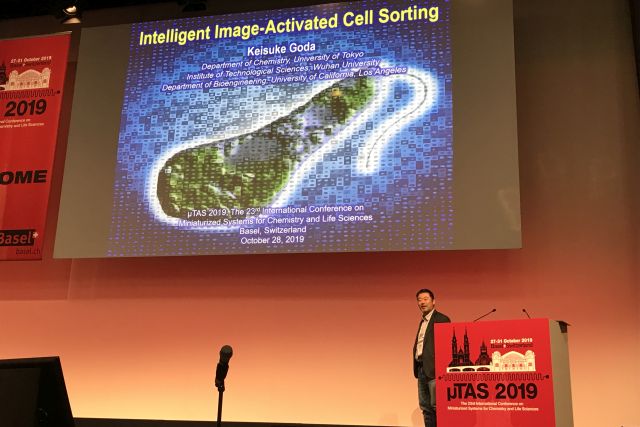
Acknowledgment in conference presentation
Your name will be posted in the acknowledgment section of a conference presentation.
- A report of the conference presentation will be sent by email.
- Presentation time and date to be announced.
- Acknowledgment will be given once.
Move to the University of Tokyo Fund
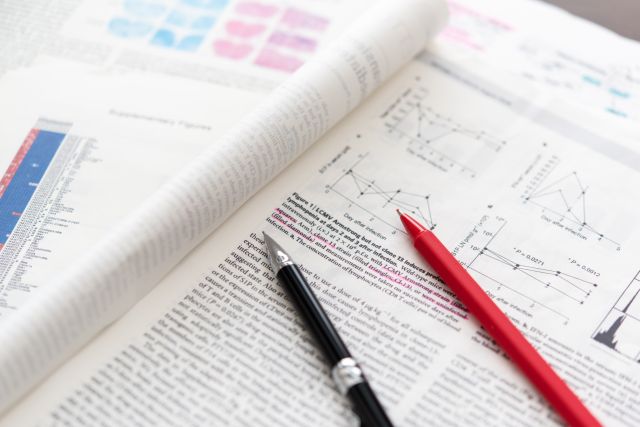
Acknowledgment in a published research paper
Your name will be included in the acknowledgment section of a published research paper.
- A report of publication will be sent by email.
- Presentation time and date to be announced.
- Acknowledgment will be given once.
Move to the University of Tokyo Fund
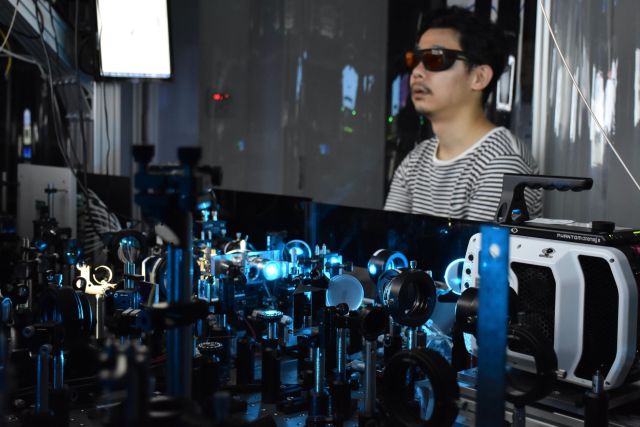
Lab tour and special lecture
You will be invited to a laboratory tour and special lecture at the University of Tokyo.
- One attendee per 50,000 yen donation.
- Details will be sent by email after April 2021.
Move to the University of Tokyo Fund
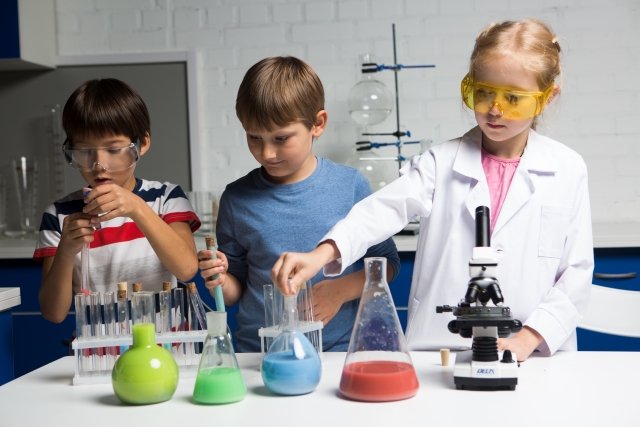
Youth summer school
Participatory experiment classes will be held for junior high school to high school-aged students at the University of Tokyo.
- Two students and one accompanying adult per 100,000 yen donation.
- Details will be sent by email after April 2021.
Move to the University of Tokyo Fund

Super sake tasting
We will invite you to a special sake tasting party, featuring the collaboration of the Super Yeast born in this project and a sake brewer.
- Participation in the tasting is limited to those over 20 years old.
- Two adults per 200,000 yen donation.
- Details will be sent by email after April 2021.
Move to the University of Tokyo Fund
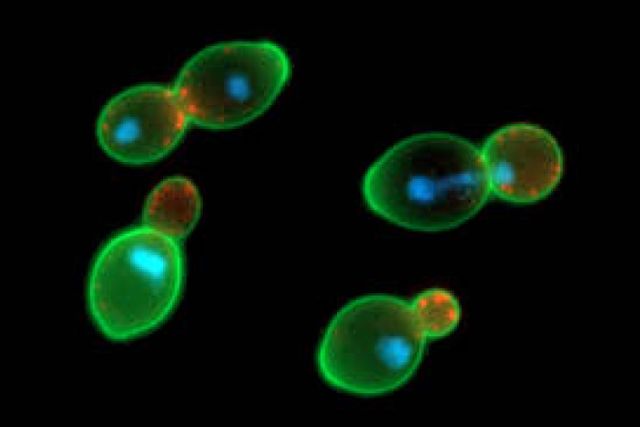
Naming of Super Yeast strains
You will be able to name a new Super Yeast strain!
- Naming must adhere to rules, to be determined at a later time.
- The naming will be after 2022.
Move to the University of Tokyo Fund
- Please note that the contents of the benefits are subject to change due to research reasons or may not be implemented.
- Events may be postponed or canceled due to weather, natural disasters, the unexpected interruption of transportation, etc.
- If you move or your e-mail address changes, we may not be able to notify you. If your contact information changes, please register your new information in your "My Page" at the University of Tokyo Fund website.
[Operating company]
Music Securities, Inc.
Research and Industrial Collaboration Promotion Office